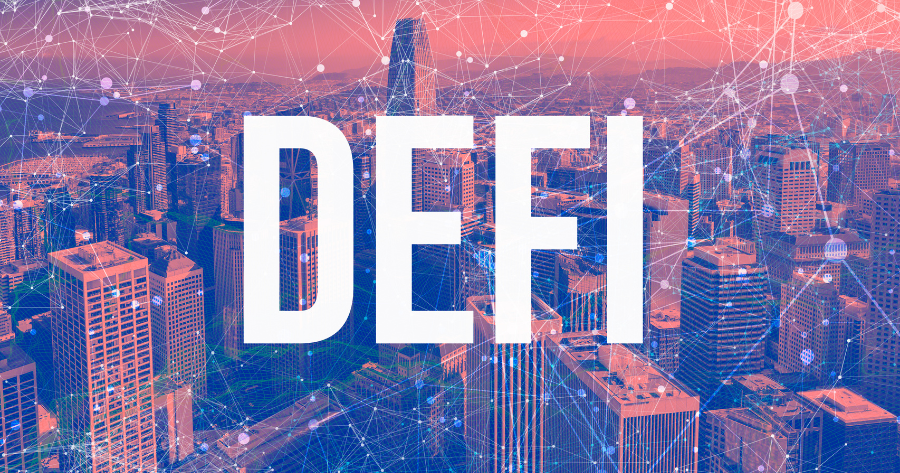The idea of decentralizing finance is nothing new. Decentralized finance (DeFi) is a concept that has been around for decades, and it’s starting to gain traction in recent years. DeFi is a form of financial services that are provided without the need for a central authority, such as a bank or government. It allows people to manage their own finances, access services, and transact peer-to-peer without the need for third-party intermediaries.
DeFi has seen a surge in popularity recently, with new platforms, protocols, and applications being built all the time. This surge has been driven largely by the rise of cryptocurrency and blockchain technology, which has enabled new ways of creating and managing digital assets. As the technology develops further and more people start to use DeFi services, the future of decentralized finance looks very promising.
What is Decentralized Finance?
Decentralized finance (DeFi) is a type of financial system that does not rely on a central authority, such as a bank or government, for its operation. It is built on open source protocols, smart contracts, and distributed ledger technologies, such as blockchain. These technologies enable DeFi to provide users with access to financial services, such as lending, borrowing, trading, investing, and more.
The main advantage of DeFi is that it eliminates the need for middlemen. DeFi transactions are peer-to-peer, meaning that users can exchange value without the need for a third-party intermediary. This makes transactions faster, cheaper, and more secure.
Advantages of Decentralized Finance
One of the main advantages of DeFi is that it provides users with access to financial services without the need for a central authority. This means that users can access services such as lending, borrowing, and trading without the need for a bank or other financial institution.
DeFi also has the potential to democratize finance, as it allows anyone to access the same financial services as traditional financial institutions. This could open up new opportunities for those who have previously been unable to access banking services, such as the unbanked or underbanked.
Another advantage of DeFi is that it is a permissionless system. This means that anyone can access and use the services without needing permission from a central authority. This makes it more accessible and inclusive than traditional financial services.
Finally, DeFi is more secure than traditional finance. Transactions are secured by blockchain technology, which makes them immutable, meaning that they cannot be reversed or manipulated. This makes it much more difficult for hackers to steal funds or manipulate the system.
Challenges of Decentralized Finance
Despite its many advantages, DeFi is not without its challenges. One of the main challenges is scalability. DeFi protocols are designed to be used by millions of users, but they are not yet capable of handling this level of traffic. This means that transactions can take longer than expected and that the system can experience slowdowns during periods of high usage.
Another challenge is the complexity of DeFi protocols. DeFi protocols are built on complex technology, and users need a good understanding of the system in order to make full use of it. This complexity can make DeFi intimidating for new users, and it can also make it difficult for developers to create new applications and services. Finally, there are regulatory challenges. Many countries are yet to create a legal framework for DeFi, and this can make it difficult for users to access services. As regulations evolve, this could become less of an issue, but it is still a challenge that needs to be addressed.

The Future of Decentralized Finance
The future of decentralized finance looks very promising. As the technology matures and more people start to use DeFi services, the potential of the technology will become more evident.
In the future, we can expect to see DeFi protocols becoming more scalable and user-friendly. This will make them more accessible to new users and enable more complex services to be built.
We can also expect to see more regulations being put in place, as governments and other authorities start to recognize the potential of DeFi. This could lead to more widespread adoption of the technology, as users will have the reassurance of a legal framework.
Conclusion
Decentralized finance (DeFi) is a revolutionary concept that has the potential to revolutionize the way we access and use financial services. It eliminates the need for middlemen, democratizes finance, and is more secure than traditional finance.
The future of DeFi looks very promising, with more protocols, applications and services being built all the time. As the technology matures and more regulations are put in place, we can expect to see DeFi becoming more widely adopted in the coming years.
